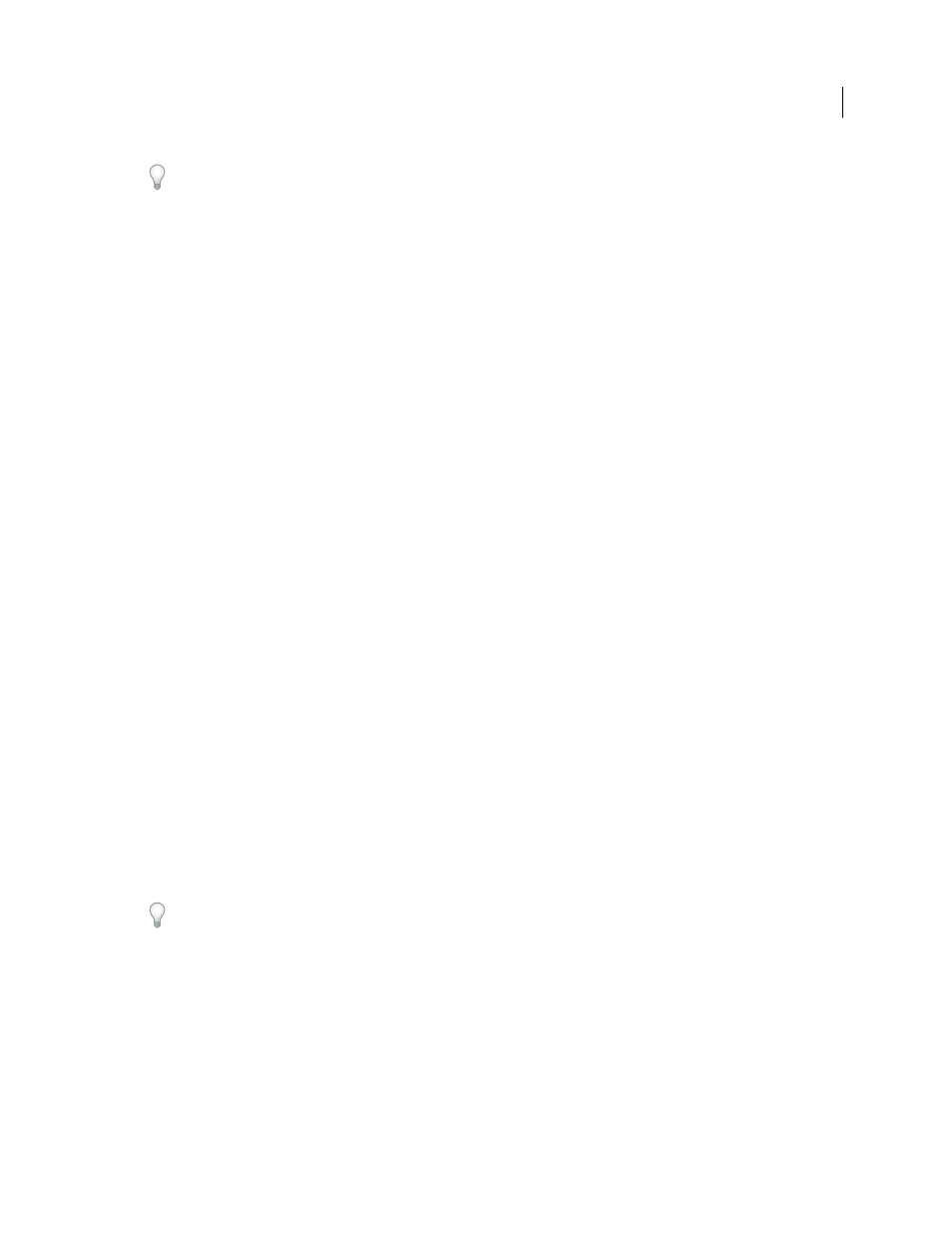Duplicate an image, Rulers, the grid, and guides, About rulers – Adobe Photoshop CS4 User Manual
Page 43: Change a ruler’s zero origin

36
USING PHOTOSHOP CS4
Workspace
Last updated 1/10/2010
Click the file information area of the status bar to display document width, height, channels, and resolution. Control-
click (Windows) or Command-click (Mac OS), to display tile width and height.
More Help topics
Adjust dynamic range view for HDR images
Duplicate an image
You can duplicate an entire image (including all layers, layer masks, and channels) into available memory without
saving to disk.
1
Open the image you want to duplicate.
2
Choose Image > Duplicate.
3
Enter a name for the duplicated image.
4
If you want to duplicate the image and merge the layers, select Duplicate Merged Layers Only. To preserve the
layers, make sure this option is deselected.
5
Click OK.
Rulers, the grid, and guides
About rulers
Rulers help you position images or elements precisely. When visible, rulers appear along the top and left side of the
active window. Markers in the ruler display the pointer’s position when you move it. Changing the ruler origin (the (0,
0) mark on the top and left rulers) lets you measure from a specific point on the image. The ruler origin also determines
the grid’s point of origin.
To show or hide rulers, choose View
> Rulers.
Change a ruler’s zero origin
1
(Optional) Choose View
> Snap To, then
choose any combination of options from the submenu. This snaps the
ruler origin to guides, slices, or document bounds. You can also snap to the grid.
2
Position the pointer over the intersection of the rulers in the upper-left corner of the window, and drag diagonally
down onto the image. A set of cross hairs appears, marking the new origin on the rulers.
You can hold down Shift as you drag to make the ruler origin snap to the ruler ticks.
To reset a ruler’s origin to its default value, double-click the upper-left corner of the ruler.